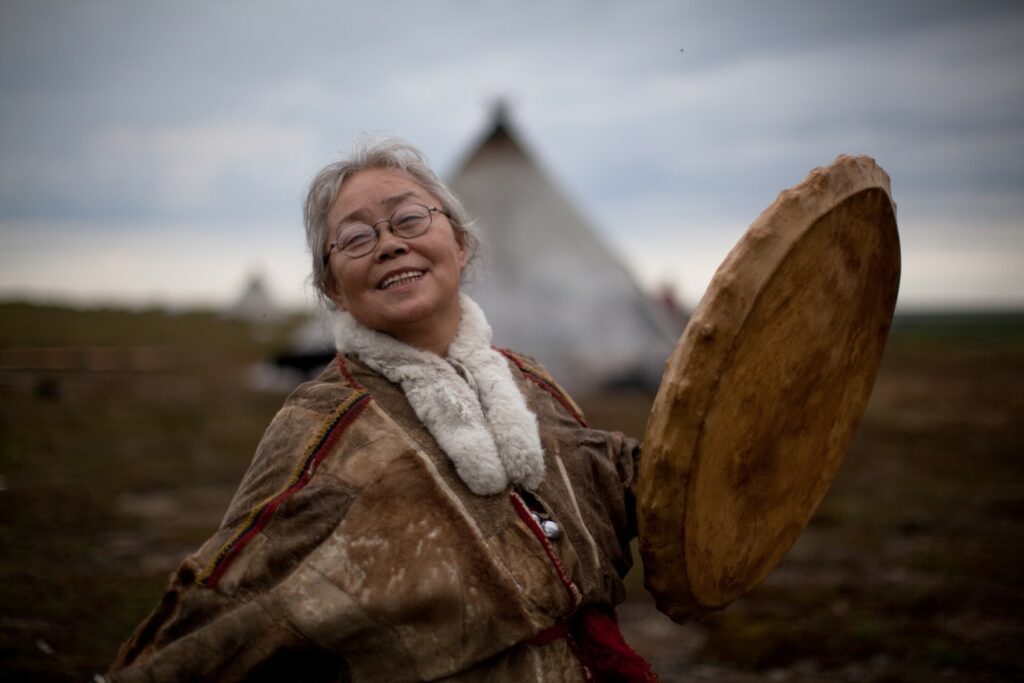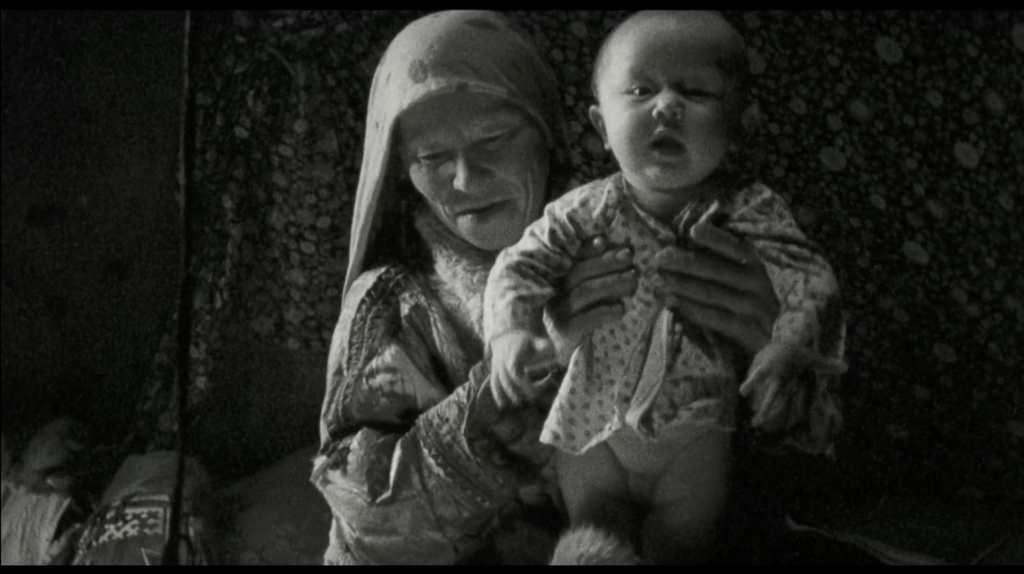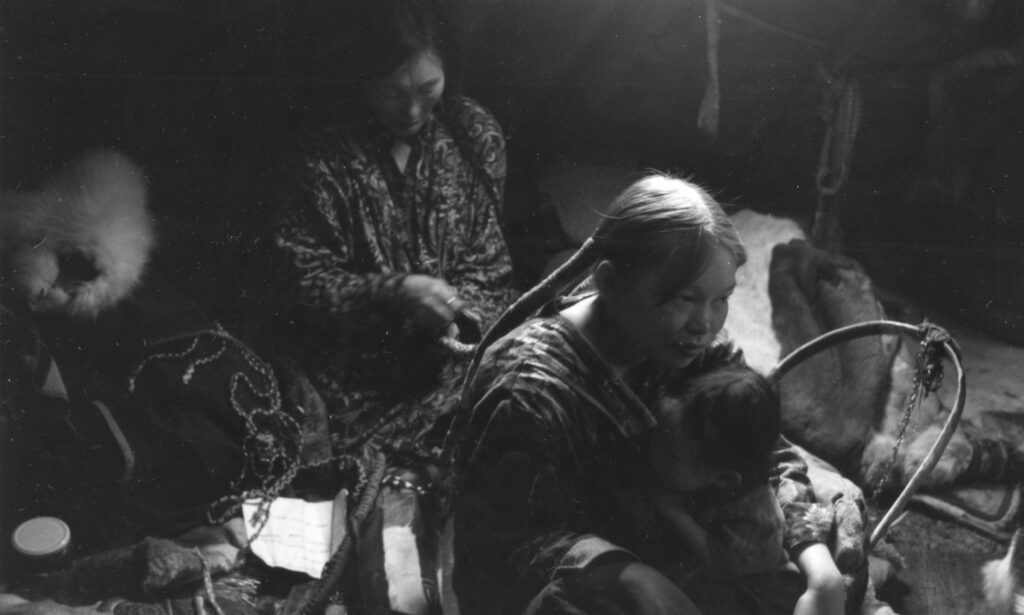Anastasia Lapsui
Anastasia Lapsui (Nenets) is a filmmaker, screenwriter, and radio journalist born into a nomadic family in the Yamalo-Nenets Autonomous Okrug in 1944, northwest of Siberia. She has developed a highly original documentary and narrative filmmaking practice in collaboration with her partner, Markku Lehmuskallio. Together, they have produced elegant portraits of the Nenets, Sami, and other Indigenous peoples, incorporating traditional folktales and spiritual customs with meticulous depictions of their everyday lives. She studied at the Salekhard Pedagogical Institute (1963-1966) and Ural State University, becoming the first Indigenous radio journalist in Yamal. Her films have been widely exhibited at festivals and museums around the world, including the Berlinale, International Film Festival Rotterdam, Docpoint Helsinki, Toronto International Film Festival, Dok Leipzig, Midnight Sun Film Festival, and Karlovy Vary International Film Festival. She is the recipient of numerous awards including Finland’s top film prize, the Jussi Award, for Best Film (2000), Best Screenplay (2001) and Best Documentary Film (2003); Grand Prize from Festival International de Films de Femmes (2010); a Confédération Internationale des Cinémas d’Art et Essai Award from Berlinale Forum (2002); and the Finland Award (2009).
Filmography
(all co-directed with Markku Lehmuskallio): Pyhä (with Johannes Lehmuskallio, 2017), Tsamo (2015), Eleven Images of a Human (2012), Pudana – Last of the Line (2010), Earth Evocation (2009), Travelling (2007), The Sami (2006), Fata Morgana (2004), A Bride of the Seventh Heaven (2003), Mothers of Life (2002), Shepherd (2001), Seven Songs from the Tundra (2000), The Sacrifice – A Film about a Forest (1998), Anna (1997)




